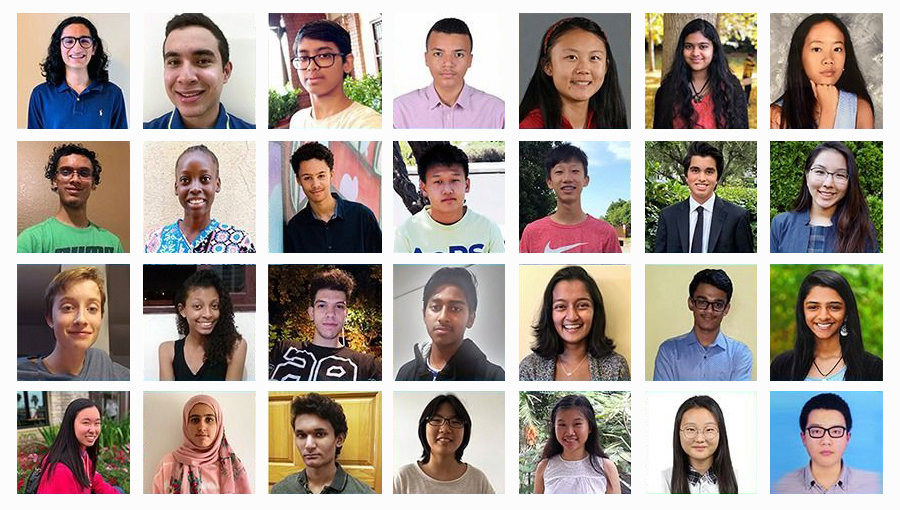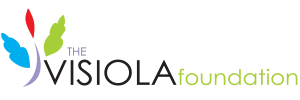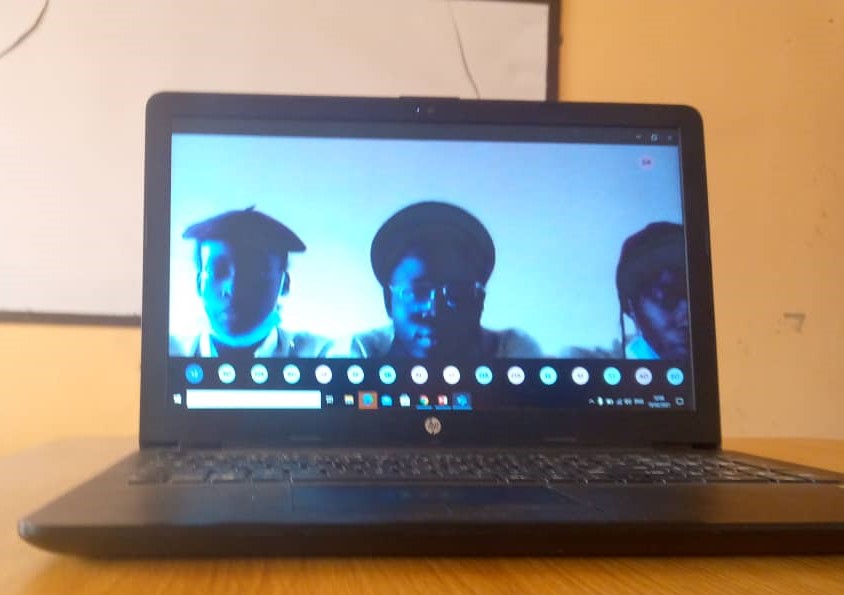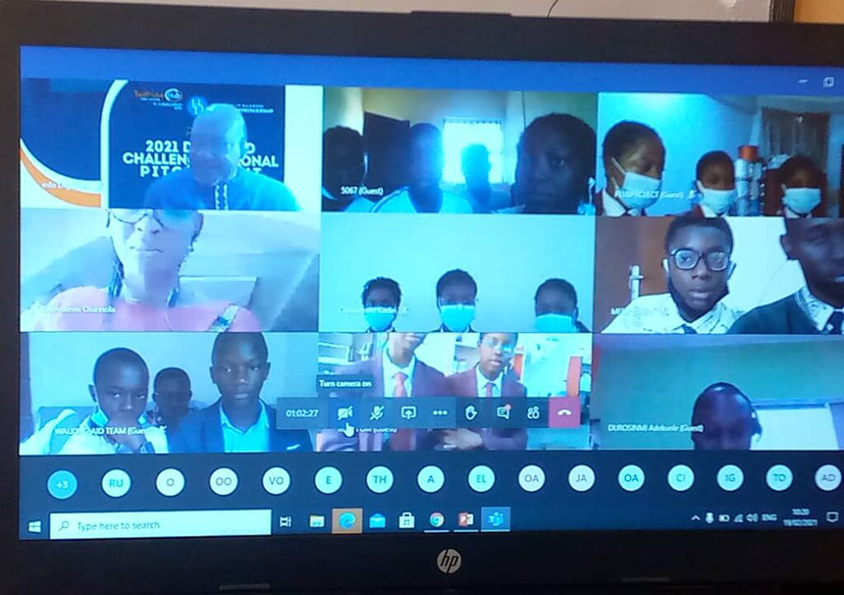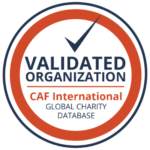the visiola foundation e-newsletter
Issue Q1, 2021
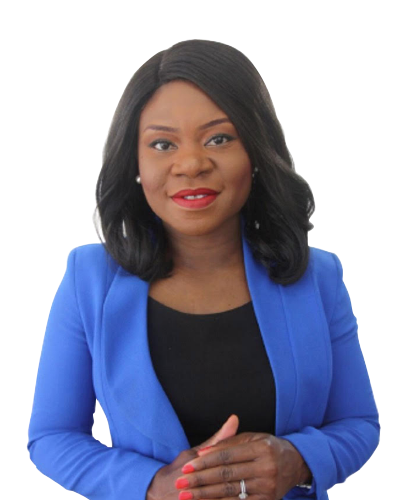
Ladé Araba
Founder and President of the Visiola Foundation
Founders' Corner
Rising Cyber Security Risks Could Cripple Africa’s Critical Infrastructure – Why African Countries Need More Home Grown Cyber Security Experts
Colonial Pipeline Co. was hit by a ransomware attack in early May 2021, which led to the “shutdown of its 5,500 mile pipeline that carries 45% of the fuel used on the east coast of the US, and which was quickly followed by a rise in gasoline prices, panic buying of gas across the southeast, and the closure of thousands of gas stations.” In the past two years, similar attacks have hampered a US natural gas compressor facility, as well as various utilities and energy companies around the world.
Critical infrastructure is vulnerable and is an attractive target as cyber attacks emerge as a growing global threat. Colonial ended up paying a ransom of $4.4 million in bitcoin to receive a key that would unlock its files. The rise in automated tools and the use of cryptocurrencies create an additional layer of complexity that makes it more difficult to unmask the perpetrators, and that invariably makes this a lucrative “business.” In a recent interview, a cyber security expert noted the increase in ransomware attacks on social infrastructure (such as hospitals), which creates a clear threat to human life, and therefore increases the likelihood of a quick payout.
Figure 1: Example of a ransomware notice as it appears on computer screens
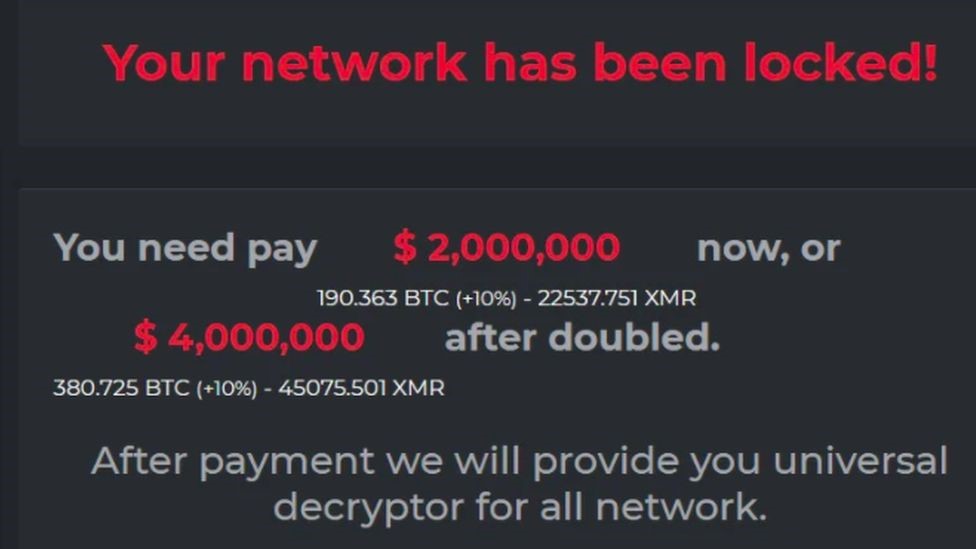
I shudder when I contemplate the more profound vulnerability of African countries’ critical infrastructure. This issue is perhaps even more compelling than the estimated $3.5 billion in financial losses in the region due to cybercrime. As national electricity grids are modernized, intelligent transportation systems emerge, municipal water and sanitation systems use artificial intelligence to improve their management and performance, governments and businesses store critical and sensitive data in the cloud, hospitals and schools are connected to the internet etc. the potential for and the economic and social costs of cyber attacks rise exponentially. Unfortunately, many African countries are not currently equipped to handle the massive adverse impact of total system collapses in their critical infrastructure. Aggressively incorporating cyber security and cyber physical security systems should therefore become regional and national priorities.
However, there is already an estimated global shortage of about four million cyber security experts. By some estimates, the shortage in Africa is for 100,000 skilled professionals. Building domestic capacity is important in preparing the region to effectively counter this growing threat. Yet, there is insufficient availability of institutions in Africa that provide explicit training in cyber security, and not enough students are pursuing this career track. Based on the general gender gap in computer science in the region, I would hazard that the percentage of female candidates in that limited talent pool is low. All hands should be on deck and the best minds – both female and male – are required to prevent future economic and social disasters from cyber attacks.
We had an engaging first quarter where we resumed our virtual STEM classes and taught junior and senior secondary school girls topics in math, physics, and biology. We helped them deepen their understanding of core theories and supported their learning as government secondary schools gradually re-opened. Early feedback from the students indicated that those who participated in our virtual classes performed better in school and did not demonstrate a gap in their knowledge, which their peers who had been out of school and unable to access online learning did.
We hope you enjoy reading these updates.
Warm Regards,
Ladé
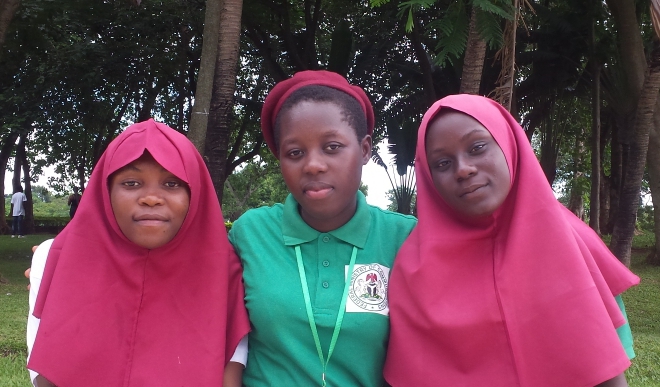
Habibah (18), Amarachi (17) and Wasila (17)
TEAM VACCTICK SHARE THEIR JOURNEY SO FAR
“My team members and I joined the Visiola Foundation’s After-School STEM Club for Girls in 2018. There, we learnt problem-solving, critical thinking, teamwork, and presentation skills. We were also taught how to apply STEM principles to solve problems in our communities. We developed a mobile application called VaccTick with guidance from the Visiola Foundation instructors. We designed the app to help parents keep track of the vaccination schedules for their children, while providing them with a list of certified clinics that they could visit.
My team has participated in a number of national and global competitions over the past three years and we have performed well in most. We received a few awards and strong recognition from the Federal Ministry of Communications, from the Vision 2020 Youth Empowerment and Restoration Initiative, from the Diamond Challenge sponsored by Delware University, from the Technovation Challenge, and TechQuest.
Our latest achievement was at the MTN Hackathon in December 2020 where we came third. We received a number of prizes, including a Samsung Galaxy Tablet, N500,000 ($1,315) in funding and admission to a six-week coding camp where we will continue developing the app.
Thus far, we have successfully updated the User Interface, created our brand identity, connected our app API, and MTN is working with us to upload the app to the Google Playstore.
We would like to say a very big thank you to the Visiola Foundation for building us up and enabling us to access such an incredible opportunity.”
– Amarachi (17)
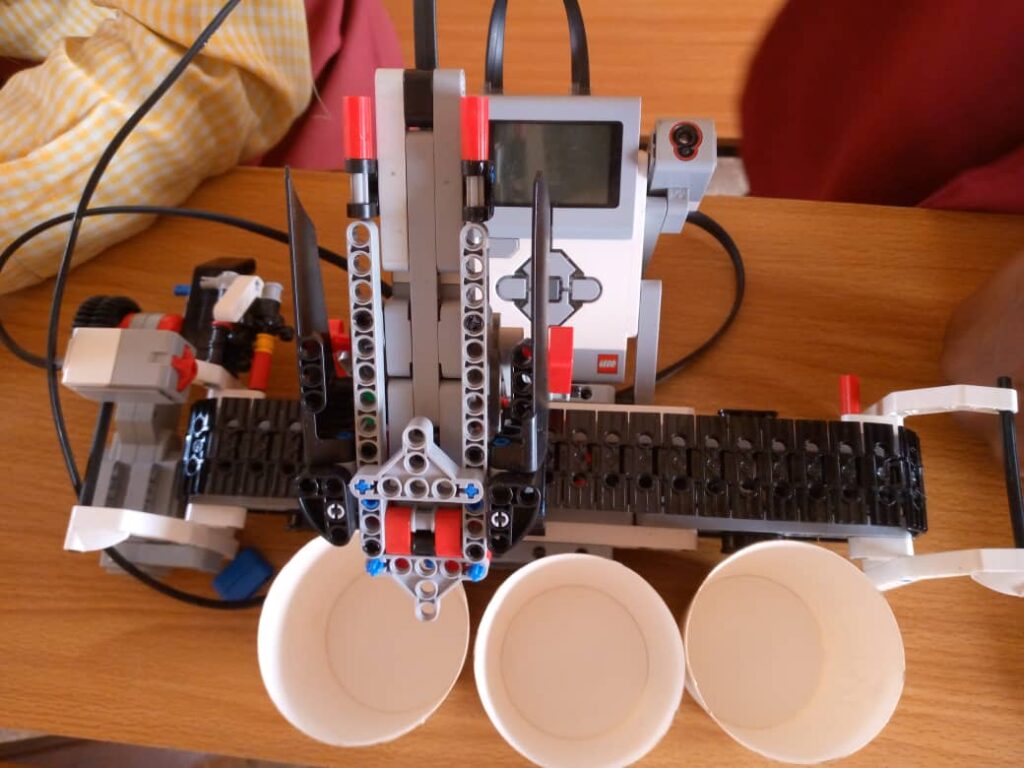
Team RoboSorter
ASCG TEAM PRESENTS ROBOTIC WASTE SORTER AT THE DIAMOND CHALLENGE
Students from our After-School STEM Clubs for Girls (ASCG) Program participated in the 2021 Diamond Challenge virtual competition on February 19, 2021. The team participated in the Social Innovation Category and presented their robotic trash sorter, for which they received high commendation from the judges.
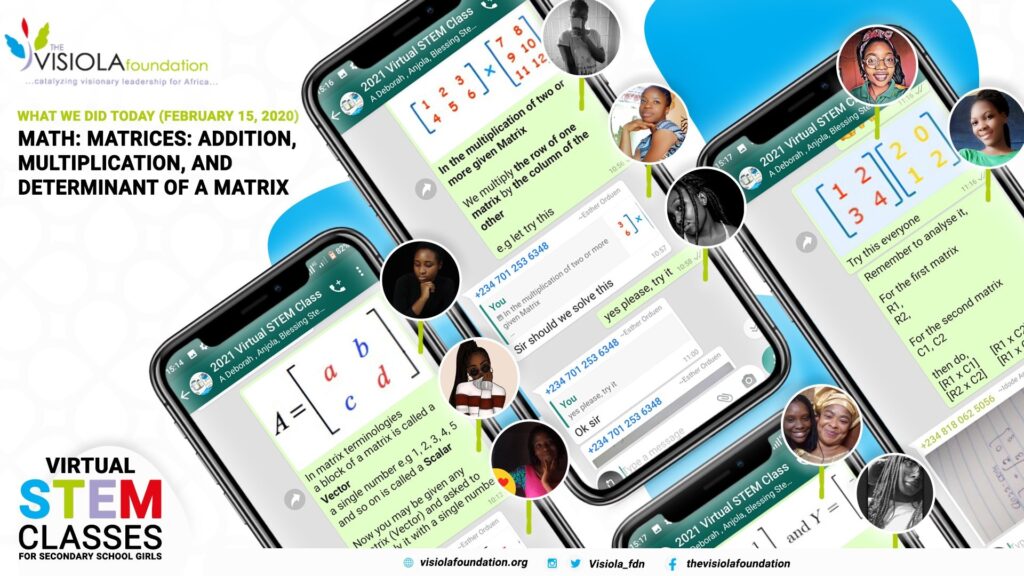
Team RoboSorter
VIRTUAL STEM CLASSES RESUME, TEACHING MATH, PHYSICS, AND BIOLOGY
We resumed our Virtual STEM Classes on Whatsapp to enable marginalized students to continue studying and learning despite school closures and limited opportunities. The classes ran from February 1st to April 2nd and covered topics in Biology, Math, and Physics from the national curriculum. We taught a group of junior and senior secondary school girls through text explanations, pictures, short pre-recorded videos, and voice notes to explain theories and concepts. Students were allowed to join the live sessions or catch up by watching and listening to posted videos and messages, and turning in homework at the end of the day. Our instructors remained online to provide extra coaching and tutoring to those who needed them.
The Specific objectives of the Virtual STEM Classes include:
- Increased STEM knowledge and skills, evidenced by improved academic performance and leadership development.
- Increased confidence in studying STEM subjects.
Click here to watch the re-cap of one of our virtual math classes
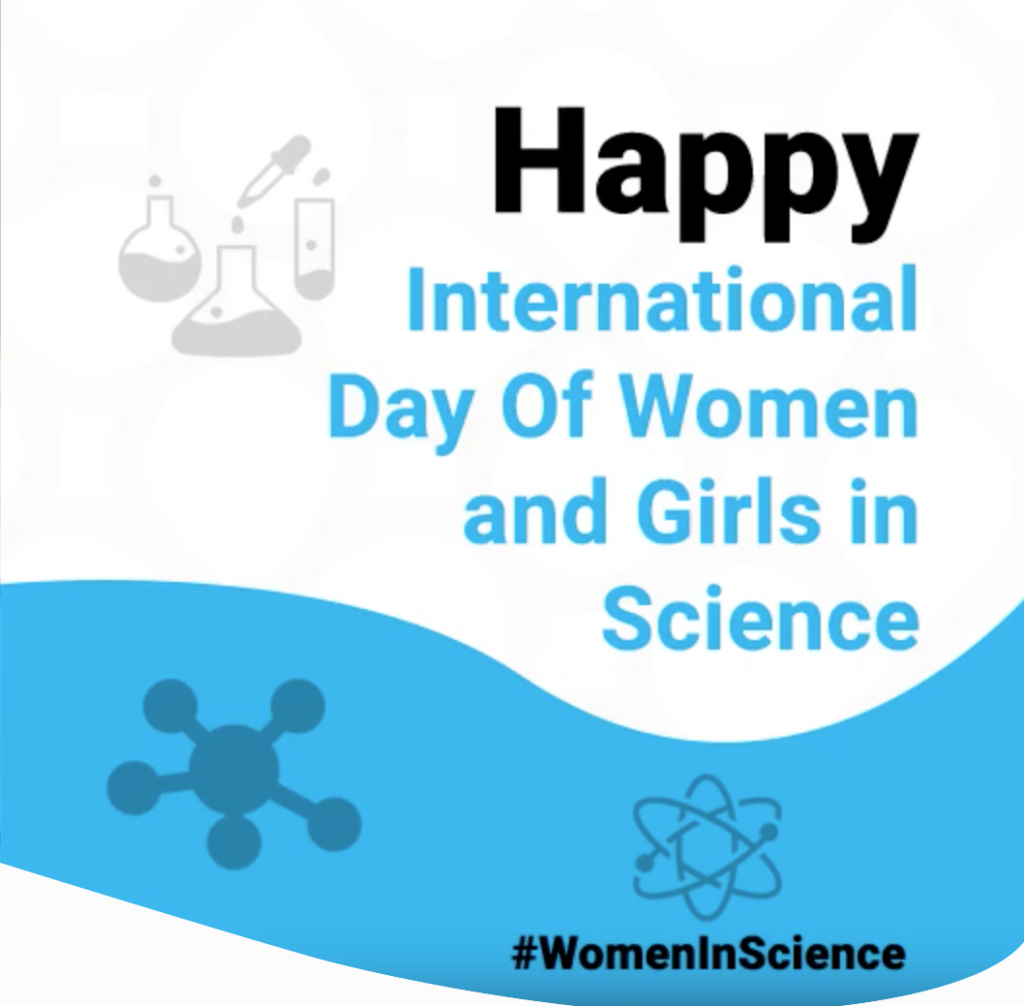
PAST STUDENTS SHARE A MESSAGE ON INTERNATIONAL DAY OF WOMEN AND GIRLS IN SCIENCE
We need more female scientists and more female African scientists! Here is a message from some of our former students, celebrating women and girls in science.
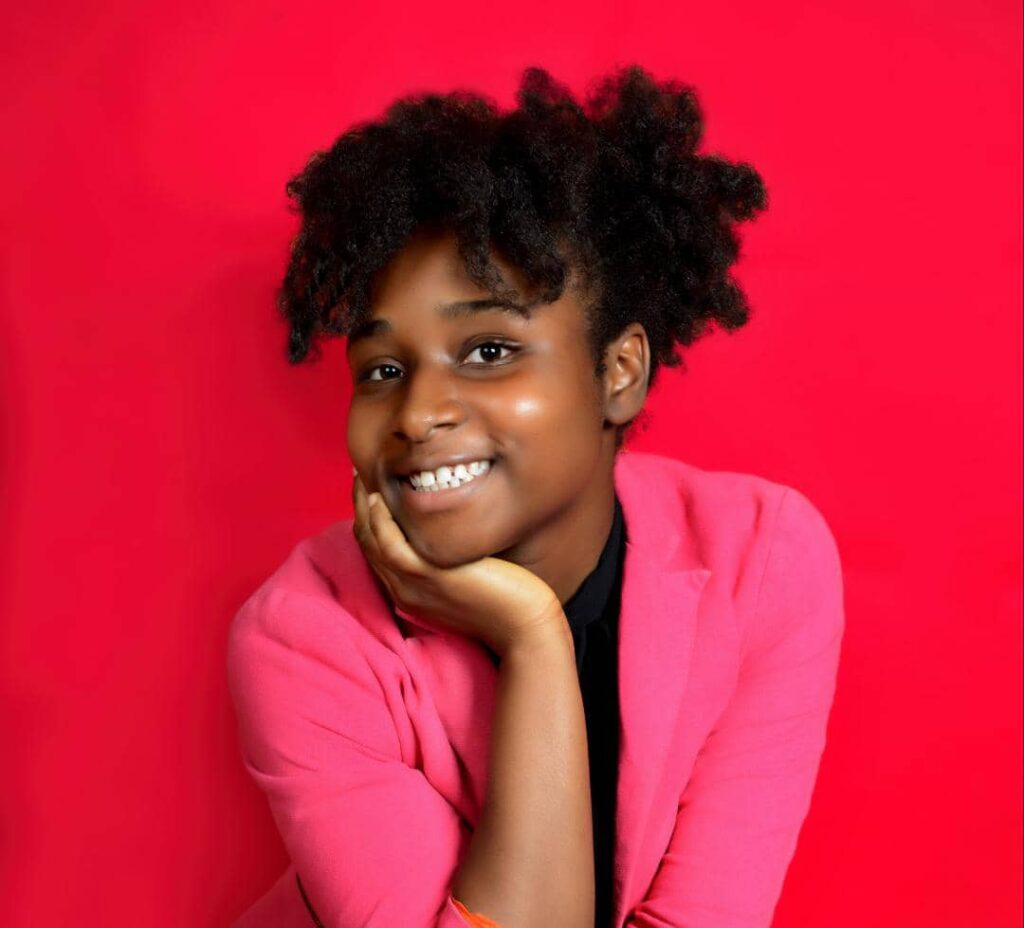
Deborah (18)
WE LOVE RECEIVING PAST STUDENT TESTIMONIALS
I started the program with zero knowledge about coding, but I had a passion to learn. The program was intense. I learnt graphic design and how to build websites and mobile applications. The sessions were challenging but fun, so it was sad to leave at the end. I also developed problem-solving skills and learnt to be resilient. We encountered errors and results that weren’t what we wanted, but our teachers guided us in figuring out the solutions. Following the boot camp, I also participated in the virtual STEM classes and in the virtual STEM camp as the pandemic continued.
The Visiola Foundation didn’t just teach me how to code – they also taught me how to work in teams. Today, I am a first-year undergraduate student studying Industrial Chemistry at Olabisi Onabanjo University, and I can look back and see how all the experiences at the Visiola Foundation’s programs continue to be relevant in my studies. I look forward to a future full of all possibilities, where my voice is heard as an African woman doing amazing things in the space. Thank you Visiola Foundation”
– Deborah (18)
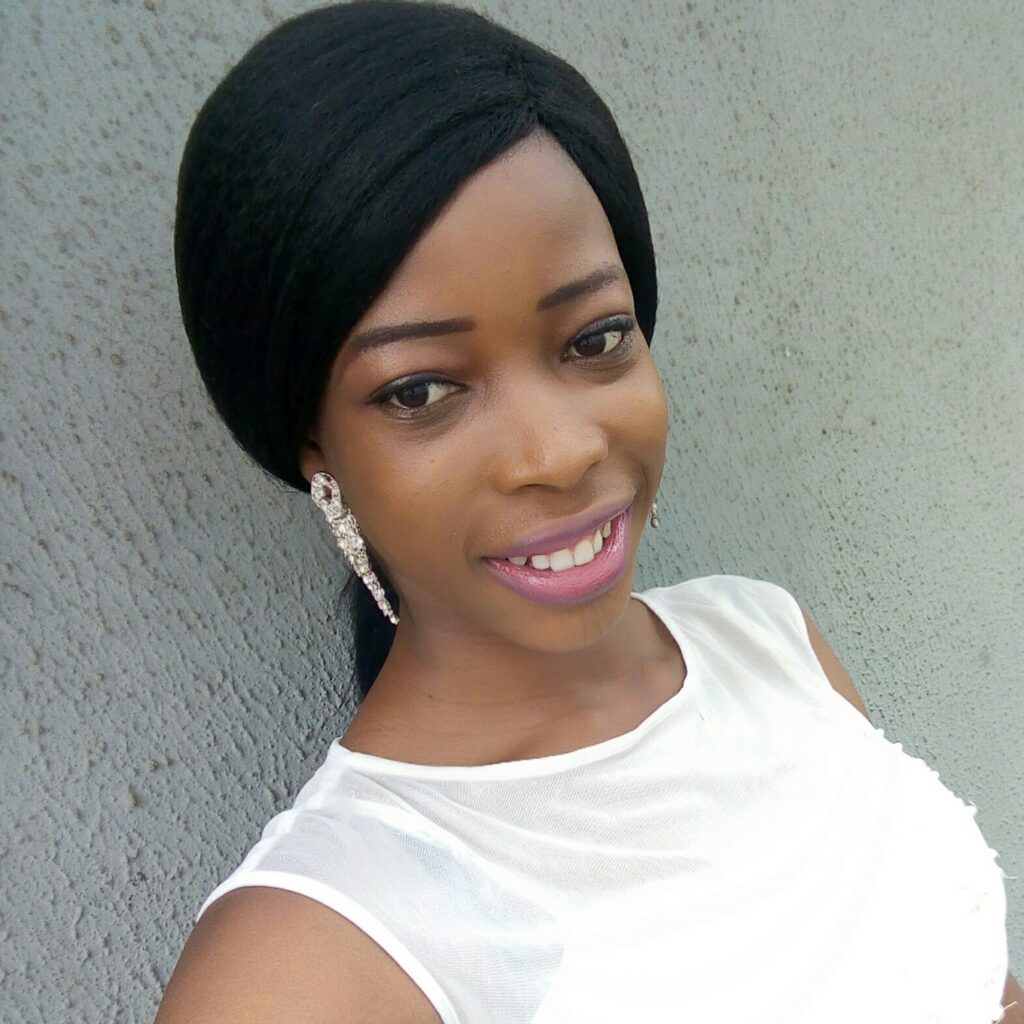
Bolanle (27)
“I was privileged to be part of the Visiola Foundation’s first-ever virtual Coding Boot Camp in 2020 where we learnt full stack web development, Python, and data analytics using Excel. The skills and knowledge that I acquired there have continued to serve me in school. I am currently sharing what I learnt with my peers.”
– Bolanle (27)
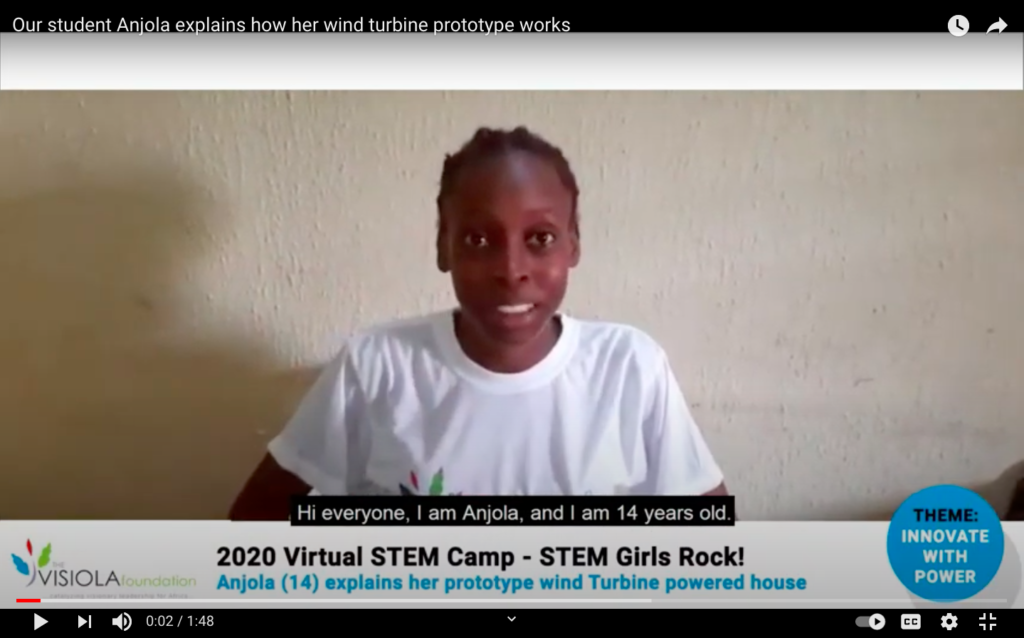
I want to say a very big thank you to the Visiola Foundation for giving me this opportunity and platform.”
– Anjola (14)
VISIOLA FOUNDATION STUDENT SHARES HER EXPERIENCE SO FAR AS A 2020 WORLD SCIENCE SCHOLAR
The World Science Scholars (WSS) program, an initiative of the World Science Festival, announced its newest class of 27 young Scholars—exceptionally talented mathematical minds, hailing from 14 countries. WSS brings Scholars together with world-renowned experts in an interdisciplinary and multi-layered online program that encourages the Scholars to explore new scientific areas in which their extraordinary skills can be applied.
“We have covered seven courses thus far in my journey with the World Science Scholars Program. I have worked with scholars from other countries build various projects. I have learnt about nature, biochemistry, and physics. My favorite part of the program has been working with other scholars to solve scientific puzzles, as well as the question-and-answer sessions and course quizzes.
Read the official notice here.
